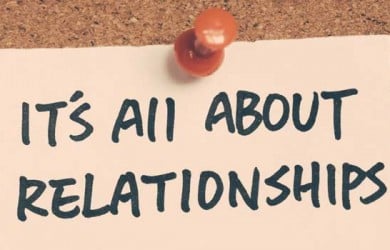The Five Elements of Conflict in Relationships

Unlock Daily 30-Sec Tips for a Happier Relationship
👉 Subscribe FREEKey Takeaways
Marriage.com AI Quick Summary
Elements of Conflict in a Relationship and How to Resolve Them
Fights, arguments, disagreements, disputes, conflicts, whatever word you use, the meaning is the same when you are thick in the middle of it with your spouse: high-emotion discussions. No one likes these situations, but all relationships have their share of heated, often unpleasant moments. (If yours doesn’t, you aren’t communicating enough!)
When we talk about the meaning of conflict in relationships, we do not necessarily refer to the typical definition of conflict, which is a disagreement or argument between two or more entities.
Conflicts are different concerning a relationship, and they are inevitable.
Let’s break down what we mean when we talk about conflict. Let’s learn about various aspects of conflict by understanding the elements of conflict.
Conflict is a normal part of life
No one goes through life in a bubble of joy, sparkles, and free kittens. Conflicts will present themselves in your professional and personal life. The key to going through these challenging moments is possessing the healthy skills that help you move towards conflict resolution in a way that is non-coercive, productive, and produces results that are agreeable to both parties involved.
Learning to manage conflict means learning good communication and listening skills. Being a good listener, allowing your partner to air his point of view, and recognizing that you two are not adversaries as you work through conflict are all part of moving toward resolution in a mature, reflective way.
Conflict can be minimized and sometimes avoided altogether
Ever known someone who does risk management for a living? They constantly imagine future scenarios that may present a risk for a company and then work on different variables to reduce the likelihood of those risky situations ever developing.
The same can be done for conflict management. Certain behaviors will produce conflict within your couple, and you would want to examine these and see where changes could be made to minimize the potential for disagreement.
Example: you have a hard time being punctual, which is a major source of irritation for your husband. Solution: use alerts and alarms, and start out earlier than needed. So that you arrive on time (and avoid conflict with your husband).
Avoiding conflict does not mean rolling over and disregarding your feelings in order not to cause a fight. That attitude seldom works and can result in pent-up anger and resentment.
One of the trickiest elements of conflict is to evaluate potential areas and see what needs to be dealt with healthily and what steps you can take to avoid unnecessary conflict.
In this video learn how to communicate better in your relationships.
Understand the difference between major and minor conflicts
Figure out if this conflict is just a difference of opinion or an important disagreement. A difference of opinion is not life-impacting. Know how to pick your battles. Anyone who has raised children knows the value of carefully picking what you wish to work on with your child and what you can disregard (or address another time).
Another element of conflict is to analyze it by asking yourself if this is worth unpacking or if it would be better if you just stepped around it carefully. So many couples waste their energy nitpicking over issues that aren’t such a big deal in the long run.
When you see conflict on the horizon, take a moment to pull back and ask yourself if this is something major that should be addressed or something minor that you can easily just let go of. Ask yourself how you will feel if you do one or the other?
Related Reading: 23 Tips to Overcome Your Conflict Avoidance Issue in Relationship
Every conflict does not have to have a winner and a loser
This is one of the most important elements you can integrate. So many of us are taught from an early age that we must come out a winner, that being number one is the ultimate goal, and that there is shame in being thought of as a “loser.”
But conflict resolution is not binary. On the contrary, if you can use conflict to learn more about your partner as you listen to their side of the dispute, you are already a winner. If you can use conflict as a springboard for strengthening your bond as a couple, you are already a winner.
Also watch: What Is a Relationship Conflict?
If you can use conflict to grow as a person, taking the lessons it gives you as you work on the issues presented, you are already a winner.
So even if you don’t “win” over your partner to agree with your side of the conflict, it’s ok. Using conflict to learn about yourself is one of the conflict’s hidden blessings.
Conflict is a life lesson in disguise
When conflict presents itself, your first reaction may be to balk, gear up for battle, and start reciting all the reasons you are right, and your partner is wrong. Your pulse quickens, your blood pressure rises, and you’ve got your angry face.
Not a nice place to be in, right? What if you looked at conflict another way? One of the most important elements of conflict is to look at it as an opportunity to argue. Why not examine everything you could learn from this situation?
Things like sharing viewpoints respectfully, moving towards compromise rather than a “win,” and allowing yourself to be open to another opinion and perhaps a better way of doing things?
Seeing conflict as one of life’s greatest teachers is a healthier way to meet these challenging moments rather than viewing conflict as a war from which you must emerge victor.
Related Reading: The Value of Conflict In Relationships
How to resolve conflict with your partner – 5 ways
Even after you understand the elements of conflict, it is only rational to know how to resolve a conflict with your partner. When you are committed, every experience is bigger than you think, adding to the life you will lead in the future.
To ensure that you have carved a bright future for yourself and your partner, you must learn to resolve a conflict.
Sometimes you get over a conflict by talking it out nicely. On other days you criticize your partner for providing silent treatment, etc. Read this article to learn more about resolving conflict with your partner.
Related Reading: 5 Steps to Resolve Conflict With Your Partner
FAQ’s
-
What are the common conflicts in relationships?
While there are many reasons because of why conflicts can arise in a relationship, here are some common types of conflicts that you can easily recognize and learn to deal with.
- Lack of communication or communication in the wrong way will always cause some conflicts in a relationship.
- Unreasonable expectations from each other also cause a lot of serious conflicts that can damage your bond.
- Being selfish in a relationship always causes conflicts; if not stopped at the right time, it can cost you your relationship.
- Resenting your partner may not only cause conflicts but also tear the relationship apart.
- Neglection, rejection, and negative criticism are other common reasons responsible for conflicts in a relationship.
- Unfaithfulness in a relationship is another common conflict.
Takeaway
Understanding the elements of conflict is the first step, but if you respect your relationship enough, you should always identify conflicts at an early stage and resolve them.
Come up with a strategy that works for both of you, or you can opt for relationship counseling to better understand a conflict resolution map that works for you and your partner.
Always evaluate if the conflict is bigger than what you have with your partner before reacting to the situation. A solution might make it better for your good.
 Tips
Tips
Write your tip or submit a video tip
All tips are reviewed before the publishing.
Share this article on
Want to have a happier, healthier marriage?
If you feel disconnected or frustrated about the state of your marriage but want to avoid separation and/or divorce, the marriage.com course meant for married couples is an excellent resource to help you overcome the most challenging aspects of being married.
Recent Articles
Related Quizzes
Unlock Daily 30-Sec Tips for a Happier, Healthier Relationship
👉 Subscribe FREE on YouTube We'd love your feedback!
We'd love your feedback!
 Expert Q&A
Expert Q&A
Ask your question related to this topic & get the support you deserve from experts.



















 Thanks for your feedback!
Thanks for your feedback!